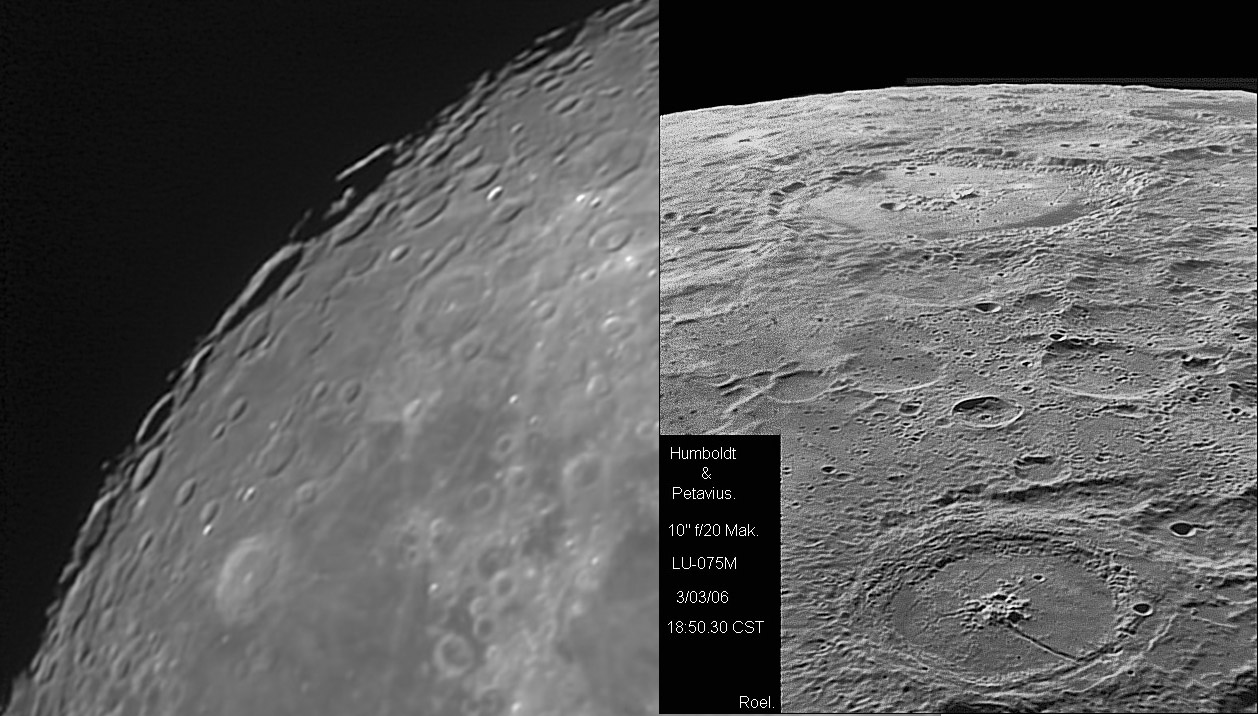March 5, 2021
A Morning Observation And a New Problem
Originally published July 17, 2011

left image by Maurice Collins, New Zealand, and right one from Eric Roel, Mexico
I observed the Moon this morning (Saturday) at 5:30 AM and immediately noticed a long crater
at the terminator. What was intriguing was that a massive central mountain stuck up into the
setting Sun while the rest of the crater, except the rim crests, were shadowed. And the large
peak complex wasn't centered, it extended a considerable distance to the north. From its size
and position I knew that the shadowed crater was Humboldt but I didn't know why the peak
was so "uncentral". Fortunately, Maurice Collins captured an image (left above) early Saturday
morning too, so I had his view to confrim my observations. And his image looks very much
like my view for he used a Meade 3" ETX and I obseserved with a 3" Orion Mak-Cass. And
then I found Eric Roel's image (right) from a 2006 LPOD, and was reminded that Humboldt
has a long linear ridge rather than a central peak. A classic Apollo 15 view shows that there
is a central peak, as well as a line of hills. The real question then is what is the origin of the
hills? A vertical view from LRO shows long groves of ejecta to the NE, in the same direction
as the ridge. Perhaps Humboldt formed from a low oblique impact, creating a central ridge as
at Schiller. But Schiller itself is very elongated and Humboldt isn't. The main mass of impact
melt is to the SE, indicating that might be the impact direction. And the ridge marks the boundary
between a flat part of the floor and the part covered by hills. These clues ought to be enough to
suggest an origin for the line of hills, but I don't see it yet. Do you?
Chuck Wood
Technical Details
Maurice's image: July 16, 2011, 1002-1031 UT. ETX-90 + LPI.
Eric;s image: March 3, 2006. 10″ f/20 TEC Maksutov + LU-075M camera, 100 frames from 3000.
Related Links
Rükl plate 60
Yesterday's LPOD: Animated Drawings - a Lunar First?
Tomorrow's LPOD: Polar Outlook
COMMENTS?
Register, Log in, and join in the comments.



